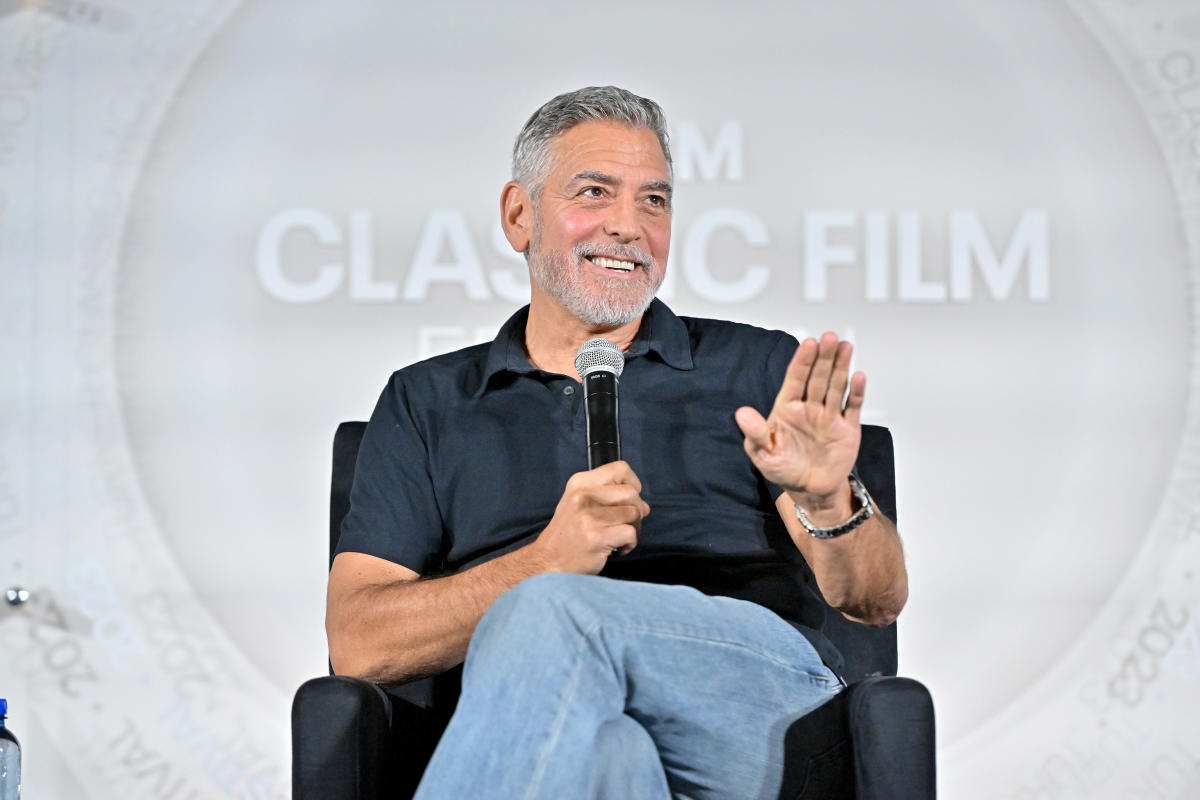
, Ben Affleck, and several other top-tier celebrities presented a proposal to SAG-AFTRA leadership on Tuesday in hopes of resolving the ongoing 98-day actors strike.
Unfortunately, the proposal was rejected by the union’s negotiating committee on Wednesday, as they are steadfast in their demands which have been communicated throughout the weeks of negotiations.
Unpacking the Proposal
Let’s delve deeper into the proposal to understand why it fell short.
The proposal consists of two main components: an increase in dues for high-earning actors and a redistribution of residuals to prioritize lower-earning actors.
Dues Increase
Currently, SAG-AFTRA members pay $231.96 in base dues annually, plus 1.575% of covered earnings up to $1 million. The A-listers’ proposal aimed to remove the earnings cap, subjecting all covered actor earnings to the 1.575% assessment.
According to Clooney, this change would generate approximately $50 million per year. However, this figure seems exaggerated as it implies that actors earn approximately $3.2 billion annually beyond the cap. That equates to around 160 actors earning an average of $21 million per year, which seems unrealistic.
Furthermore, it’s important to note that the SAG-AFTRA strike is not about dues. The strike aims to increase actors’ income, not the union’s funding. These two aspects are not interchangeable. A dues increase cannot compensate for payments owed by studios to actors or to the actors’ pension and health funds.
Dues are also irrelevant to the collective bargaining process as they are not subject to negotiation between the union and the Alliance of Motion Picture and Television Producers. The SAG-AFTRA National Board, which sets the dues, would need to undertake a separate process to convince high-earning actors to contribute more to the union.
While SAG-AFTRA would likely find a use for any additional funds, the union is not facing a decline in dues. In fact, the union reported receiving $127 million in the last fiscal year, a significant increase from the previous year as production rebounded to pre-pandemic levels.
SAG-AFTRA President Fran Drescher addressed the issue of dues in an Instagram video released on Thursday night. She explained that dues cannot be used to fund the pension and health plans, as they serve different purposes. Additionally, an increase in dues does not impact the contract being negotiated during the strike.
‘Bottom-Up’ Residual Structure
The group also proposed a new residual structure wherein lower-earning actors would be paid first, and higher-earning actors would receive residuals last.
However, this proposal seems to confuse residuals with profit participation. A-list actors can negotiate a percentage of profits, which are distributed in a “waterfall” system. As profits increase, the money flows down to lower-tier actors. It does make a difference where an actor stands in the waterfall structure.
Residuals, on the other hand, are paid out equally and simultaneously to all eligible recipients. Whenever a project is sold to a new medium or re-aired on TV, the union contracts specify the exact amounts each party is owed. Residuals are not linked to profits and do not involve a “waterfall” system. The position of an actor is irrelevant in this context.
Drescher also addressed the residual proposal in her Instagram video, stating that it was thoroughly evaluated by experienced union contract staff, negotiators, and lawyers. Unfortunately, they concluded it was not a viable solution, emphasizing the complexity and fragility of the situation.
In summary, neither of these proposals addresses the core issues fueling the 98-day actors strike. The ongoing strike is driven by a union proposal to secure a share of streaming revenue, an increase in minimums to account for inflation, and regulations on artificial intelligence.
It’s important to acknowledge that the proposals were likely made with genuine intentions to resolve the strike, reflecting a sense of responsibility among high-earning actors to contribute to the resolution.
However, from the perspective of the SAG-AFTRA Negotiating Committee, these proposals may undermine unity and commitment to the committee’s established demands, which are crucial for securing the best possible deal. Additionally, the proposals could relieve the studios of their obligation to cover the expenses previously refused, as high-earning actors would potentially foot the bill.
When asked how A-list actors could help facilitate a resolution, a source close to the talks suggested they join the picket line.
VIP+ Webinar Replay: Hollywood on Strike — What’s Next?
Best of Variety
Sign up for Reference


